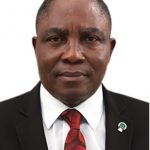- June 11, 2020
- Posted by: Precious David
- Category: Uncategorized

Subsidy Removal: Oil and Gas Webinar Advocates Rule-based System
…opposes current discretionary approach
An oil and gas webinar has advocated a rule-based system as opposed to the current discretionary approach by Nigerian authorities saying that the development would give investors certainty, apart from ensuring investor friendly regulations to boost the sector.
The 4th in the series of oil and gas webinar was put together by African Initiative for Transparency and Responsible Leadership (AfriTAL), with the theme-Petroleum Industry Bill: Myths and Realities.
The development is coming on the heels of recent pronouncement by leaders of the Nigerian Oil and Gas sector, notably the Group Managing Director of the Nigerian National Petroleum Corporation(NNPC) Mallam Kolo Kyari and the Minister of State for Petroleum Resources, Chief Timipre Sylva.
On the removal of subsidy, they expressed worry that, if the discretionary approach was not progressed to the realm of law, it may likely be reversed in the future, thereby acting as a discouraging factor to would-be investors.

Dr Timothy Okon, a geophysicist and petroleum economist, and doubles as the Group CEO of the International Institute for Petroleum, Energy Law and Policy, who set the ball rolling on the discussion agreed that a rule based system is always better than a discretion based system.
He noted that Section 6 of the Petroleum Act is the basis upon which petroleum prices are set, stressing that there is also the price control Act.
According to him, all these laws can be reviewed within a short period of time and therefore, gives certainty to investors, ensures that investor friendly regulations are emplaced to boost the capacity of the oil and gas sector.
He argued that Investors are usually very suspicious and cautious in discretion based systems, notably in Nigeria as the country needs to make the midstream and downstream to be profitable, adding that any market that is benchmarked on a monopoly cannot be economically viable and beneficial to all.
He posited that the state does not have the resources to continuously invest and thus needs the investors, while expressing dismay that the country is basically subsidizing all the refineries and this cannot bring the necessary succor to the nation.
“We need to focus on import substitution by making the downstream economically viable, attractive to investors by removing price restrictions. When Dangote refinery is birthed, it will sell fuel to Nigeria as any other exporting refinery”, he said.
He further placed on record that between 2006 and 2018, Nigeria spent 63bn dollars in subsidies, explaining that if “we had 63bn in our national reserves when the prices collapsed, we would be able to fund our budgets through the Sovereign Wealth Fund, which is a stabilization fund that also has a component of infrastructure fund and the inter-generational fund”.
“We would have used the stabilization fund instead of borrowing to fund the budget now. When a country goes borrowing, that country is essentially borrowing and spending money on behalf of the next generation. This is not economically sound, and this would create economic crisis for Nigeria in future. If we had not spent the 63bn on subsidy, we would have maintained a GDP growth level above the population growth rate”, he said.
He noted that there is an economic theory as expounded by the Malthusianism trap, which says that when your population growth is geometric in progression and the country’s economic growth is arithmetic, the resultant outcome would be a Malthusian catastrophe. Our population growth rate is 3%. Our economic growth rate is less than 2% and that is a disaster.
The conference also dwelled on the jinxed Petroleum Industry Bill(PIB)before the National Assembly as they took turns to express utter dismay on its non-passage by the 8th Assembly.
Speaking the PIB, a member of the House of Representatives Committees on Appropriation and Navy, Honourable Henry Nwauba, who played a key role as a member of the technical committee on PIB during the 8th Assembly, recalled that the back and forth on this Bill in the 8th Assembly only ended up with the PIGB.
According to him, he has been eager to ensure that this time around, the Bill should see the light of the day in the life of this 9th Assembly, adding that the two Chambers are in tandem on how to engage the stakeholders and give the bill accelerated passage.
He said they had expected it in June 2020 but the present uncertainties might have affected the timing and appealed to stakeholders to be a bit more patient so that when it eventually comes, it would serve the good of all.
He however confirmed that they shall be focusing on other aspects of the oil industry especially at the mid and downstream levels, respectively.
Honorable Nwauba’s reassurance and cheering news however did not excite the organized labour as Petroleum and Gas Workers Senior Staff Association of Nigeria (PENGASSAN) though it’s President, Comrade Nduka Ohaeri, said what is happening to the PIB is not encouraging. Even though that there are assurances that the bill would be passed, he regretted the fact that this same bill has taken over twenty years in utero and still not birthed.
He observed that it is not encouraging that the bill being talked about is shrouded in secrecy, a lot of opacity and distrust. These he said, have led to the reluctance by industry players to invest in the midstream and downstream sector of the industry. Every country would want to legislate on what will turn its oil industry around for the good of the country. Why it is not so in Nigeria becomes concerning and discomforting. This must change. He opined that it is the duty of the government to provide the enabling environment for investments to take place. For PENGASSAN, if government carries every stakeholder along and the unions allowed to make their inputs into the present PIB framework, it would be easier to pass through the legislative process.
The Trade Union Congress (TUC), represented by Comrade Chika Onuegbu, described what is happening about the PIB as a bitter/sweet news. “The sweet part is that government is doing something about the PIB, which anyway, is not new. It has been the case any time there is a new NASS. Hopefully, this would end becoming an act of parliament. The Bitter aspect is to hear that such a sensitive law that would affect several generations, is being done in utmost secrecy and would not be seen by other stakeholders other than the few egg heads currently crafting and drafting the bill. According to him, Labour should be carried along so that their input will be included in what shall go to the Federal Executive Council.
He applauded the wisdom in the new bill laying emphasis on the midstream and downstream sectors of the industry. He noted that the development of the value chains of the sector would boost diversification of midstream and downstream sectors, which would facilitate the establishments of jobs in processing and product manufacturing.
Cogent Ojobor representing NUPENG said there is a fundamental flaw in the way the downstream is being managed. For instance, he asked “how can a country record its derivable revenue from the sales of crude oil in trillions and also flicker in trillions on the other hand? It doesn’t make sense and that is why NUPENG is happy that the focus is now being gradually shifted from the upstream to the downstream, which has more capacity for employment generation.
“Diversification is dynamic and as one that has been a member of the standing committee for very many years. It is disconcerting that the history of the PIB makes someone hysterical. NUPENG is worried because if the executive refused to facilitate the bill to the house, it means that, the bill would go the way of others.
Earlier in his address at the occasion, the Former President of PENGASSAN and former Deputy President General 1 of TUC, and Convener of the Save Nigeria Oil and Gas Industry and founder of AfriTAL, Dr. Louis Brown Ogbeifun thanked participants for finding time to honor the invitation to the session. He said the session was programmed to bring stakeholders together in order to brainstorm and proffer solutions to the myriads of challenges plaguing the petroleum industry. He noted that the main stay of our economy is the oil and gas. Paradoxically, the stakeholders, which should work together for the good of the industry are all unhappy partners and at each other’s throat.
He not that government realized long ago that the industry was in a parlous state, it has not been serious with the efforts at transforming the industry into a bankable sector.
According to him, the sector represents the goose that lays the golden egg and It was in the realization of this it sowed the seed of transformation in form of Oil and Gas Implementation Committee in April 2000.
He however regretted that twenty years after, it is yet to birth the Petroleum Industry Bill, which emanated from the OGIC. He noted that the Petroleum Industry Bill (PIB), which would have transformed the industry to enable government increase its revenue from oil, lay a solid foundation to strengthen oil and gas legal and regulatory framework, redefine the fiscal regimes, establish a more accountable and transparent governance system, set parameters for the efficient management of its acreages, has transformed into several versions until it was split into four parts during the life of the 8th Assembly. Just like a jinxed process, only the Petroleum Industry Governance Bill was passed. Sadly, the entire PIB process, ended without any plausible accomplishment in 2015.
The Webinar had 32 participants drawn from Government, National Assembly, Labour, Media and Civil Society.
Source: https://economicconfidential.com/2020/06/oil-and-gas-webinar/
